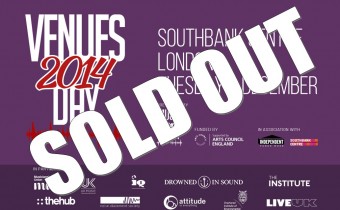The Henley Review of Music Education in England – a response
Following the publication of Darren Henley’s Review of Music Education in England report earlier this week, we’ve now had time to digest his 36 recommendations, and put together a response, which we’ve summed up here. Our comments are based on the understanding of the music education landscape, and the workforce that populates it, that we’ve developed through working in this field over the past decade, with and for: Arts Council England; the Greater London Authority; Guildhall School of Music & Drama; MusicLeader, and the Centre for Young Musicians.
Whilst broadly welcoming the report, there are a number of comments we would like to make, principally in relation to the need to ensure that future developments in music education encase all genres of music, and that they build on existing examples of best practice. We’ve not responded to each and every recommendation, and for reasons of brevity, we’ve not included the sometimes lengthy recommendations here, choosing instead to substantiate our comments by drawing on the body of relevant research we’ve carried out in recent years.
Recommendation 1:
We’re pleased to see a reference to “listening, reviewing and evaluating”, but would make a plea for this to opportunity to be offered not only to children who are themselves players or singers, but also to children more generally who, whilst not being players or singers, have an interest in music. At present, the formal education sector effectively abandons at a relatively early age those children who do not continue with their playing, meaning that they are then only exposed in the main to mainstream pop music. This has real implications for not only their creative development but also in terms of the encouragement of a next generation audience. Our own experiences suggest that its lack of exposure to a wider range of music, rather than an implicit dislike of other genres, which inhibits listening (and playing) behaviours in later life.
Recommendation 4:
We’re pleased to see a commitment to enabling progression for the widest range of young people. However, would ask the government to take note of, and respond to, the DCSF-funded research we carried out for the Centre for Young Musicians which demonstrates that there is a real dearth of progression opportunities in jazz, folk and world music. With the Wider Opportunities programme having increased young people’s exposure to these genres, post Key Stage 2 opportunities ‘nose dive’, with a school lottery determining in most boroughs the nature, scope and indeed the existence of any further provision. We would draw attention to the recommendations we made into our accompanying report:
• Inclusion of more English folk music as part of Wider Opportunities provision, contextualising it as the domestic iteration of world music (itself an umbrella term for many regionally- and culturally-specific, traditional musics)
• Increased Key Stage 3 jazz and world music
• More (visible) progression routes for young musicians in these genres at local level (see recommendation 30);
• Higher number of DFE Music and Dance Scheme places for talented young jazz, world and folk musicians
• More joined up planning and delivery between formal and informal education operators (see recommendation 14)
Recommendation 6:
Having carried out research in 2009 into the music opportunities offered to children and young people in London as delivered by Arts Council England, London’s then Regularly Funded Organisations, it’s encouraging to see this recommendation. It’s widely recognised that music RFOs such as these work with tens of thousands of young people each year, and that their varied approaches provide a multitude of ‘ways in’ to music for young people. Here, the diversity of the work done reflects the RFOs’ differing missions and strategic aims, and the partnerships which underpin their work. Where an organisation’s mission means that linking its young people’s activity to curriculum objectives is an appropriate focus of its work, we believe that this would further strengthen links between such organisations and the formal education sector, something which is to be welcomed. However, we would not recommend that organisations whose mission does not offer a means of meaningfully delivering curriculum objectives should inappropriately skew their offer in response to this recommendation.
Recommendation 8:
Again, based on our RFO research, as well as on work carried out for the Greater London Authority around its Music Education Strategy, it’s clear that partnership working is behind a significant amount of young people’s music making – in the formal and informal sectors. Anecdotally, these partnerships are ‘powered’ by highly individualised sets of relationships and networks, and the RFOs’ relationships with so called ‘gate keeper’ organisations – primarily local music services and other local authority departments – are crucial in terms of enabling RFOs to forge appropriate delivery partnerships, develop curriculum-friendly projects and gather invaluable on-the-ground intelligence.
Recommendation 10:
This is great, and we’re fully behind the idea of a National Music Plan. However – again in reference to our work with CYM on progression routes for young jazz, folk and world music players – we urge the government to ensure that any such Plan includes provision for ensuring young people’s progression in all genres. Here, this has implications for Arts Council England’s National Portfolio Organisation decision-making and the exact nature of the funding agreements made with new NPOs. For instance, if Arts Council believes it is making a contribution to an organisation’s work in total, a requirement to meet its education-related objectives should appear in the agreement.
Recommendation 12:
At present there is no recognised music education quality framework to which Arts Council funded organisations must adhere; approaches to evaluation are diverse and of differing quality, as are the methodologies which underpin them. As such, we are pleased to see a recommendation around the standardisation of evaluation practice, assuming that provision for the specific context in which work happens, or the children involved, is taken into account.
Recommendation 14:
This recommendation around Music Education Hubs echoes calls for made at the GLA’s Music Education Summit that we produced back in January 2009 for the Authority to support and advocate for emerging education hubs in the Capital, and for the Authority itself to play a role in networking and coordinating formal and informal sector organisations in all the London boroughs. This summit suggests that there is a clear appetite for so-called Hub working in the Capital at least, and so we’re pleased to see this recommendation being made.
Recommendation 17:
The recommendation that “Youth Music should be prevented from spending any government or lottery funds on lobbying and public affairs activities” is extremely worrying. At its most fundamental, the recommendation implies that no organisation in receipt of government and lottery funds should be allowed to have a lobbying or advocacy role, something which we believe is seriously misplaced and at odds with the highly valued ‘arm’s length principle’. Beyond this, Youth Music’s role as an organisation which is engaged in supporting best practice and – through its MusicLeader initiative – workforce development means that were it to abide by this recommendation its value to the sector in sharing best practice and advocating for the resources the sector needs to deliver such practice would be lost.
Recommendation 20:
Much to support here, but again we would reiterate the importance of ensuring that talented young musicians from all genres benefit from such progression opportunities.
Recommendation 21:
A great aspiration, and one where we’d like to see some involvement or liaison with Youth Music’s MusicLeader programme. In national membership research we carried out for MusicLeader in 2009, some 52% of respondents to a survey of its members (who indicated they weren’t a music leader) said that they worked as either a primary of secondary school teacher. At the same time, nearly half of all such members also indicated that they had participated in MusicLeader training, clearly demonstrating the valuable role that the programme has established for itself as a provider of sector CPD. Through working with the national MusicLeader team on this research, it’s clear to us that there is a wealth of experience and knowledge which could very usefully be put to work on developing appropriate ITT course content.
Recommendation 24:
Interestingly, less than a third of music leaders who took part in the above MusicLeader research said that they would be keen to see the programme accredit its courses, and when asked to identify challenges they anticipated facing in the next 5 years only 20% identified ‘gaining a formally accredited qualification’. In focus group discussions about the value of accreditation there was a good deal of ambivalence, on both the supply (music leader) and demand (employer) sides. As such, we’re not convinced that even were such a qualification introduced there would be significant take up, unless it was mandatory. MusicLeader itself has done more research into the issue of accreditation and quality assurance within the sector (witness its ongoing development of its nascent Code of Practice), and we would recommend further consultation with the MusicLeader team.
Recommendation 25:
If this recommendation read that “conservatoires should play a greater part in the development of a performance-led Music Education workforce” and not that they should be “recognised as playing a greater part….” then we would be in agreement; conservatoires should be required to play their part in workforce development – alongside other training and support providers, such as MusicLeader. However, as the recommendation stands at present, research we’ve carried out suggests that some conservatoires have neither the commitment to providing a fully-rounded professional training – one that equips students with both the creative and business resources they need to establish and sustain a successful career in music – or the ability to do so. In particular, research carried out by the hub for the Musicians’ Benevolent Fund suggested that curriculum planning in many conservatories pits musical study against more practical, professional development-related sessions and that – on the whole – the pervading culture is one where wider professional development is not a priority amongst those responsible for curriculum planning and delivery. In short, conservatoires seem not only to simply focus on the performance aspects of professional training, but to have little regard for the wider professional development that students need if they are to develop a sustainable career as a musician. Looking at the kinds of careers music students can expect, our MBF research found that in the previous financial year, nearly half of professional musicians aged under 26 who took part in the survey had earned less than £5000. Little surprise then that, when asked what would prevent them from becoming professional musicians, the primary reasons cited were not having the skills they needed or fees being insufficient to live on.
The next generation of music educators need a fully rounded professional music education, and we would argue that conservatoires in isolation are not able at present to deliver this. In this context, we would urge government to ask the conservatoire sector to significantly increase its connections with the MusicLeader programme in particular. Our experience of evaluating such as partnership – between MusicLeader Yorkshire and Leeds College of Music – demonstrated clearly the value to students of such a partnership in terms of adding an extra dimension to their professional training.
Recommendation 26:
Here we would simply comment that the picture painted here of musicians teaching first before becoming performers does not tally with the careers our research suggests that music students have. The reality suggested by all our research is that both music students in their first years out of college, and those with more established careers, do in fact have portfolio careers where the amount of time spent on, and fees earned from, performance and education work are finely balanced. We’d also comment that the term Music Education is not limited to work simply in schools, and that programmes like MusicLeader help to equip music leaders with the skills they need to work in the informal education sector and in other settings such as hospitals, prisons and other institutional settings.
Recommendation 27:
Given the proven value of leadership training in the cultural sector, we welcome this recommendation, and would ask that any developments here take into account the track record of programmes such as the Cultural Leadership Programme and MusicLeader.
Recommendation 28:
Whilst agreeing that there is significant value in looking to provide a quality assurance framework that is recognised and valued by both parents and sector employers, we would ask government to recognise that registering on a database does not in itself assure quality on the part of the person who has registered. Research we carried out into MusicLeader’s Code of Practice pointed to the importance of such a kitemark being underpinned by rigourous practice if it is to be valued by music leaders themselves, by employers and by parents.
Recommendation 30:
The lack of clear signposting for both parents and young musicians themselves is a widely-acknowledge issue, and one that was debated fully at the GLA’s inaugural Music Education Summit in 2010. When asked what the solution to this problem in the Capital might be, the loudest call was for the Authority to create an online ‘one stop shop’ that would aggregate content from the myriad of other information provided by individual organisations in the capital. As such, we welcome this recommendation, and hope that the process of compiling Local Authority Music Plans will facilitate this.
Recommendation 33:
Given that young people today are part of the so-called ‘digital native’ generation, we welcome any recommendation around the exploitation of digital technology in music education practice. The research we carried out for Arts Council England, London into its then RFOs provision for young people showed that those which were making the most creative use of such technology – for creative purposes but also for evaluation and marketing purposes – were those which has in place a broader digital strategy for their organisation as a whole. It also pointed to a digital skills gap in the sector, which we hope that the recently announced Building Digital Capacity in the Arts programme partnership between the Arts Council and the BBC will go some way to addressing.



